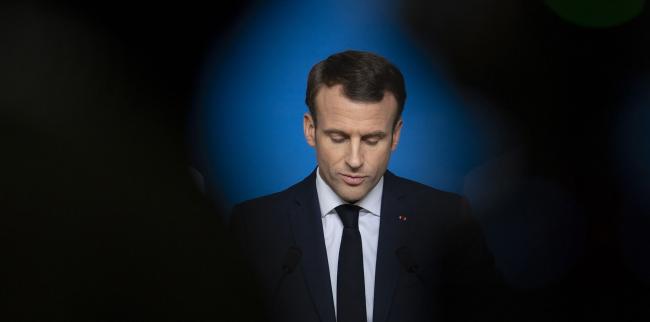(Bloomberg) -- French President Emmanuel Macron stuck to his demand for deep reforms in the European Union before it accepts new members, telling biggest candidate Serbia that premature entry would benefit no one.
Leaders across the Balkans have expressed frustration at what they say is stalling by the EU over when they can become part of the world’s biggest trading bloc. While most member are wary of taking in new members, Balkan leaders are struggling to explain the delay to their 18 million citizens who see entry as a guarantee toward higher pay and less corruption.
Concerns flared two weeks ago when, after a marathon session of wrangling over who will take the EU’s top jobs, Macron said there would be no further enlargement unless “deep reform” of the EU happens first. During a visit to Serbia Monday, where he met President Aleksandar Vucic, Macron again said that “Serbia is destined to join” but that expanding the bloc without changing the way it makes decisions would cause problems for everyone.
“Entering too quickly wouldn’t be good for Serbia, nor would it be for the EU,” Macron said, adding that even setting an entry timetable could backfire. “We must not lock ourselves in to a calaendar with a date, because if we fail it would be seen as a failure.”
The last country to become an EU member was Croatia, in 2013. Outgoing Commission President Jean-Claude Juncker said the earliest that any of the six remaining aspirants would be able to join is around 2025.
For Serbia, the biggest hurdle is resolving relations with Kosovo. Backed by Russia and China, it refuses to recognize its neighbor’s unilaterally declared independence since 2008 and has blocked its efforts to join the United Nations and other international organizations.
EU-mediated talks between Serbia and Kosovo all but collapsed last year when the latter imposed punitive 100% tax on products from Serbia and from Bosnia-Herzegovina, retaliating for Serb lobbying against its international recognition. Kosovo has ignored calls from EU states to lift the barrier.
Vucic said he expected France’s help “in the search for a compromise.” He also said that Serbia embraced the changes that it had committed to as part of EU entry.
“For us, it’s important to reform ourselves, to do our part of the work, for the sake of our people to do good and that our economy makes progress.”
Macron’s visit followed France-based Vinci Airports venture into Serbia with a 25-year concession for Aerodrom Nikola Tesla (NASDAQ:TSLA), while a unit of Suez Groupe SAS won an equally long contract in Belgrade, the capital. Alstom (PA:ALSO) SA is also vying to build a subway in Belgrade, where the two first lines may cost $4.5 billion.
